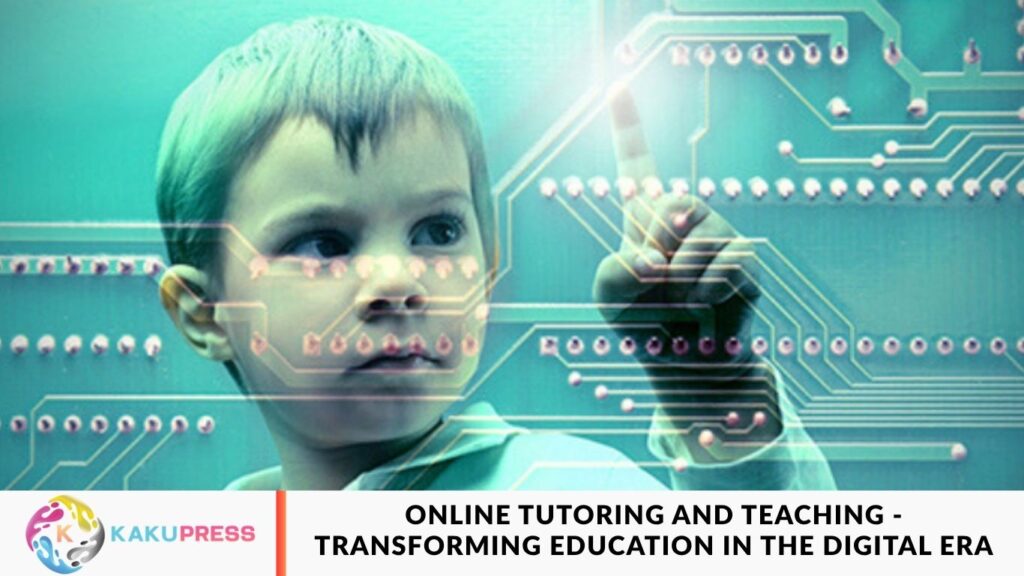Online tutoring and teaching have transformed the way students learn, offering flexible, accessible, and effective educational opportunities for learners of all ages and backgrounds. Whether you are a professional educator, a subject matter expert, or an aspiring online tutor, diving into the world of digital learning unlocks new avenues for personal and professional growth. This article delves into the key aspects of online tutoring, exploring its benefits, common challenges, and proven strategies for success in the modern educational landscape.
The Rise of Online Tutoring
Online tutoring is the practice of delivering educational support and instruction to students through digital platforms. Thanks to rapid technological advancements and widespread internet accessibility, online tutoring has emerged as a popular, flexible, and convenient alternative to traditional classroom education. It allows students to learn at their own pace, access expert guidance from anywhere, and benefit from personalized instruction tailored to their needs.
Benefits of Online Tutoring and Teaching
- Accessibility: Students can access educational resources and expert instruction from anywhere, breaking down geographical barriers and making learning more inclusive.
- Convenience: With flexible scheduling, online tutoring allows students to learn at their own pace, seamlessly integrating education into their daily routines.
- Personalization: Tutors can customize lessons to match individual learning styles, addressing specific academic challenges and boosting student performance.
- Cost-Effectiveness: Online tutoring reduces or eliminates travel and commuting expenses, making quality education more affordable and efficient.
Types of Online Tutoring
Online tutoring covers a diverse range of subjects and learning formats, catering to the unique needs of students:
- Academic Tutoring: Support in core subjects including math, science, languages, and humanities, to strengthen foundational knowledge.
- Test Preparation: Targeted coaching for standardized exams like SAT, ACT, GRE, and TOEFL to help students achieve top scores.
- Skill Development: Training in specialized skills such as coding, music, art, and writing to enhance personal and professional growth.
- Language Learning: Interactive lessons for foreign language acquisition, including conversational practice, grammar, and vocabulary building.
Read more: Event Management Business Guide – Overview, Strategies & Insights
Tools and Platforms for Online Tutoring
Successful online tutoring relies on robust digital tools that enhance learning experiences. Some of the most popular platforms include:
- Zoom: A leading video conferencing tool enabling real-time lessons, interactive discussions, and screen sharing for immersive learning.
- Google Classroom: A comprehensive digital learning platform for managing assignments, facilitating communication, and promoting collaboration between students and tutors.
- Khan Academy: An extensive online educational resource offering instructional videos, practice exercises, and personalized learning dashboards for self-paced study.
- Whiteboard Apps: Interactive tools like Microsoft Whiteboard and Explain Everything provide visual demonstrations and collaborative spaces to clarify complex concepts.
Qualities of Effective Online Tutors
Effective online tutoring goes beyond subject knowledge; it requires a combination of skills and personal attributes that enhance the learning experience:
- Strong Communication Skills: The ability to explain concepts clearly and engage students in a virtual environment for better understanding.
- Adaptability: Flexibility to adjust teaching methods based on individual learning styles, student progress, and feedback.
- Patience and Empathy: Recognizing the challenges of online learning and offering supportive, understanding guidance to students.
- Technological Proficiency: Comfort with digital platforms, virtual tools, and e-learning software to ensure smooth and effective online sessions.
Challenges of Online Tutoring
While online tutoring offers numerous benefits, it also comes with unique challenges that both tutors and students need to navigate:
- Technical Issues: Internet connectivity problems, software glitches, and hardware limitations can disrupt the learning process.
- Student Engagement: Keeping learners focused and actively participating in virtual classrooms requires creative teaching strategies.
- Assessment and Feedback: Monitoring student progress and delivering timely, constructive feedback remotely can be more complex than in traditional settings.
Best Practices for Online Tutoring and Teaching
To maximize the impact of online tutoring, educators can implement the following proven strategies:
- Set Clear Learning Objectives: Establish specific goals for each session and communicate them clearly to students to guide their learning journey.
- Use Diverse Instructional Methods: Incorporate visual aids, interactive activities, and real-world examples to make lessons engaging and relatable.
- Create a Supportive Learning Environment: Encourage student interaction, collaboration, and inclusivity to foster a positive online classroom experience.
- Provide Timely Feedback: Assess student understanding through quizzes, assignments, and regular evaluations, and offer constructive feedback to promote continuous improvement.
Professional Development for Online Educators
Continuous learning and professional development are crucial for online educators to stay up to date with the latest educational trends and teaching techniques. Participating in webinars, enrolling in online courses, and engaging with educator communities can enhance your skills, expand your knowledge, and create valuable networking opportunities with peers.
Online tutoring and teaching have revolutionized education, making learning more accessible, engaging, and personalized than ever before. By leveraging digital platforms and implementing best practices, educators and tutors can empower students, helping them achieve academic success and fostering a lifelong love of learning.
Frequently Asked Questions
What is online tutoring?
Online tutoring is the practice of providing educational support and instruction to students remotely using digital platforms, making learning flexible and accessible from anywhere in the world.
How does online tutoring differ from traditional classroom teaching?
Unlike traditional classrooms, online tutoring allows personalized learning, flexible schedules, and the use of interactive digital tools to enhance student engagement and comprehension.
What subjects can be taught through online tutoring?
Online tutoring covers a wide range of subjects, including core academics, test preparation, language learning, and skill development in areas such as coding, music, and art.
What are the benefits of online tutoring for students?
Students gain accessibility, convenience, personalized instruction, and cost-effectiveness, allowing them to learn at their own pace without geographical constraints.
Which platforms are commonly used for online tutoring?
Popular platforms include Zoom, Google Classroom, Khan Academy, and interactive whiteboard apps such as Microsoft Whiteboard or Explain Everything, for effective online learning.
What qualities make a successful online tutor?
Effective online tutors have strong communication skills, adaptability, patience, empathy, and technological proficiency to ensure engaging and smooth virtual learning experiences.
What challenges are associated with online tutoring?
Common challenges include technical issues, maintaining student engagement, and effectively assessing and providing feedback in a remote learning environment.
Conclusion
Online tutoring and teaching have truly transformed education, making learning more accessible, personalized, and engaging than ever before. With the right digital tools, effective teaching strategies, and continuous professional development, educators and tutors can overcome the challenges of virtual learning and provide meaningful, impactful instruction.

